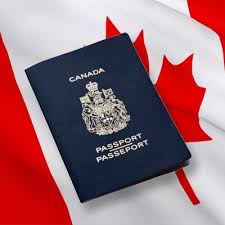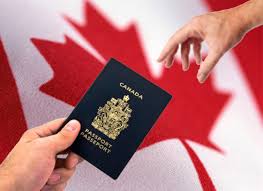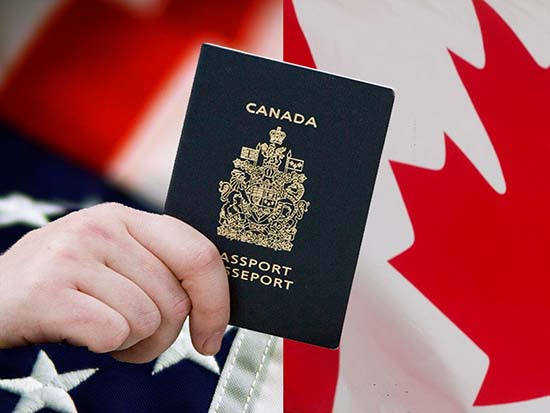Canadian Citizenship
 Canadian Citizenship: Apply for Citizenship
Canadian Citizenship: Apply for Citizenship
Applying for Canadian Citizenship may seem like the most straightforward immigration application – you don’t have to compete with other applicants or present a proof of funds. All that is necessary is a declaration that you stayed in Canada for a sufficient number of days, a simple test, and a proof that you know English or French.
This is almost it. However, there are some consideration you need to take before submitting your Canadian Citizenship application.
First and foremost, make sure you’re eligible to submit a Canadian Citizenship application. You should be a permanent resident, and you need to show that you have lived in Canada for 1,095 days (3 years) within the past 5 years. If you were a temporary resident (student or worker) before you filed your Canadian Citizenship application, your time in Canada as a temporary resident will count. However, 1 day will be considered as ½ a day, and it can only amount up to 1 year. So even if your studies took you 4 years to complete, you will only be eligible to claim 1 year towards your Canadian Citizenship citizenship eligibility. If you were a temporary resident for 1 year – only 6 months will count.
If you left Canada to go on vacation, you will have to exclude that time from the number of days you were physically present in Canada. The good news is – if you were only in Canada for part of your day, it will still count. So, if you went on vacation on Monday and returned Friday, you will only be considered absent for 3 days.
In order to make the math easier, you can use the citizenship calculator to determine your Canadian Citizenship eligibility. If you are a frequent traveler, consider keeping a travel journal in order to be able to calculate your absences from Canada.
Naturally, all rules have exceptions. Usually, if you served a sentence in Canada or were on probation, it wouldn’t be counted towards your Citizenship. Also, if you were abroad, but you were completing service in the Canadian army or worked for the Canadian government, you can count those days towards your residency obligation. Another exception is accompanying your spouse, parent, common law partner who is a Canadian citizen. If your spouse, parent or a common-law partner is a permanent resident, this will not apply, unless they were in the Canadian army or working for the Canadian government. Of course, if you were accompanying your parent, you would need to be a child.
Remember that the time is only calculated within the 5-year eligibility period. You also need to be mindful that you must keep your permanent resident status while your application is being processed.
Once you determine that you are eligible, download the package with citizenship application forms that fits your situation. You must include all absences and be truthful on your application. You will have to pay the citizenship application fee of $530, and the $100 right of citizenship fee, and mail your application to the Citizenship and Immigration Canada.

Secondly, you should make sure you file taxes during the time you were in Canada. It will help IRCC determine your eligibility. You will also need to show that you know English or French. If you are between 18 and 54, you must show that you speak one of these languages on CLB level 4, which is explained in the following chart. You can prove it by showing a diploma or certificate from attending a course in English or French, your old language test results (even if they’re old) or other proof that you can find on the government website. You might not have to submit proof of language knowledge if you have a mental or physical condition that prevents you from achieving the desired test score.
Once you have the language document, you must carefully go through your citizenship application checklist to ensure it’s complete and to prevent your application from being returned. You can always submit additional documents showing that you were physically present in Canada during the times you declared on your application. This is not required, but it could prevent you from having to submit it later in the application process in case IRCC have any doubts around your application.
Once submitted, your citizenship application in Canada will take about a year to process, but before you become a naturalized citizen, you will need to write the citizenship test. You can contact a settlement agency to sign up for free classes or download the Discover Canada book to prepare. The test will cover basic questions on Canadian history, laws, economy, geography, government, and symbols. Make sure not to miss your test date, as it could have serious consequences for your citizenship application. Same goes for your citizenship ceremony – if you don’t show up without an explanation, you will not be granted citizenship.
If you are a citizen of another country, Canada will allow you to become a dual citizen. However, you need to check your country’s laws to find out if they allow it. If not, you might have to remain a permanent resident or renounce your country’s citizenship.
Finally, before you embark on the application process, make sure you’re not already a Canadian citizen. You might have a claim to citizenship by descent if your parents were citizens, even if you were born abroad. So, give your family a call if there’s a chance you might be able to avoid the lengthy application process.
Regards,
International Experience Club

